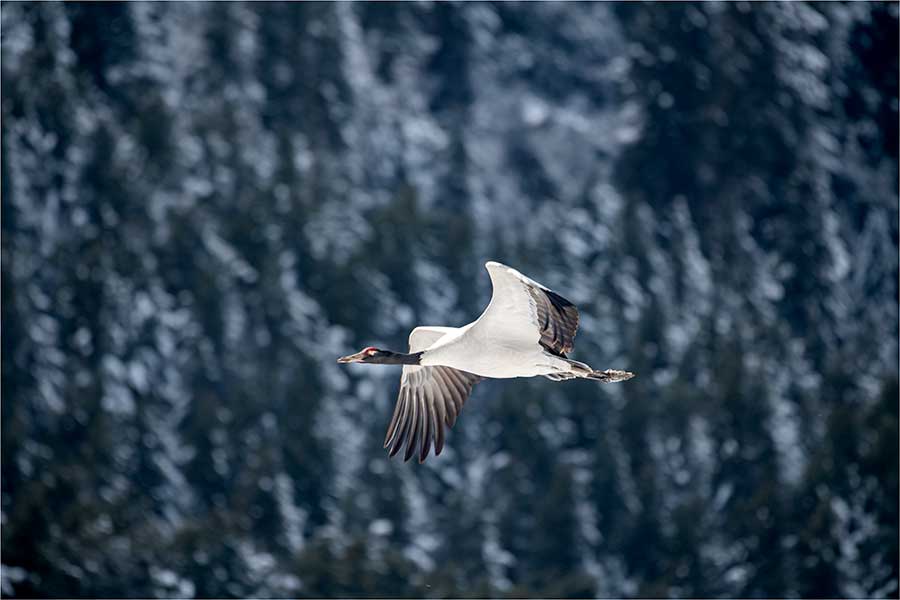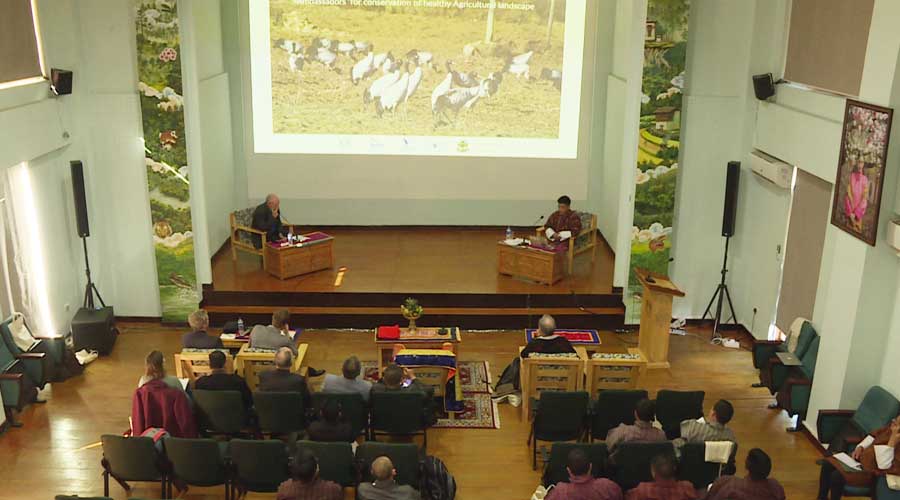
As a migratory bird, conserving the black-necked crane is a challenge for the countries which are home to the majestic bird. And it calls for collaboration at the global level to protect it. The bird listed as vulnerable by the International Union for Conservation of Nature is distributed over different areas in Bhutan, China, and India. To strengthen collaboration and efforts to conserve the bird, international experts from five countries attended a two-day meeting in Thimphu.
 Experts including researchers, conservationists, academicians, and partner institutions from the US, India, China, Germany, and Australia attended the meeting which ended today. They have engaged in studies on the management of black-necked cranes and their habitat.
Experts including researchers, conservationists, academicians, and partner institutions from the US, India, China, Germany, and Australia attended the meeting which ended today. They have engaged in studies on the management of black-necked cranes and their habitat.
Generally, change in land use and loss of wetland habitats are considered as main threats for the black-necked cranes.
“Locally, there are of course issues of habitat degradation, from a change in the land use practices like the expansion of agriculture with that comes the usage of chemical fertilizers, pesticides which drains down to the wet lands where the cranes forage or roost. So, these are some of the challenges and recently we have issues with the stray dogs predating on the BNCs” said Jigme Tshering, the Black-necked Crane National Coordinator with the RSPN.
According to conservationists, there have been little to no transboundary collaborative conservation programs. As such, conservation efforts in the three range states of Bhutan, China, and India are important and timely.
The co-founder of the International Crane Foundation, George Archibald (PhD), said there is a need for collaborative efforts among these three countries.
“The meeting of specialists from India, China and Bhutan is very, very significant because these countries share an endangered species called the BNCs, and these birds do not recognize international boundaries. They fly around and we all have to work together to protect them.”
The discussions were geared towards developing a global strategic action plan to protect and conserve the black-necked crane.
It is being organized by RSPN with funds from International Crane Foundation and The Federal Ministry for the Environment, Nature Conservation, Nuclear Safety and consumer protection (BMUV), Germany.
Kesang Wangmo
Edited by Phub Gyem








